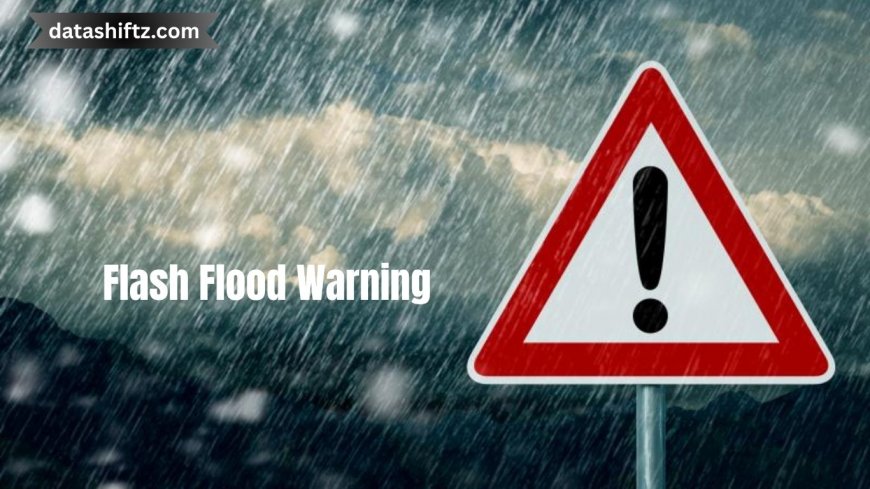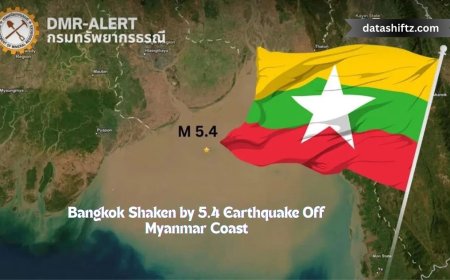Flash Flood Warning: Urgent Updates and Safety Tips

Flash floods can strike with little to no warning, leaving devastation in their wake. Today, meteorological agencies across several regions have issued flash flood warnings due to persistent heavy rainfall, saturated grounds, and rising river levels. This blog post provides updated information, areas affected, safety guidelines, and what you need to do right now to stay safe.
Flash Flood Alerts Issued in Multiple Regions
As of today, national and local weather services have flagged several states and cities for potential flash flood events. Heavy rains from a stalled storm system have overwhelmed drainage systems and rivers in parts of the Southeast, Midwest, and Southwest United States.
Areas Under Flash Flood Watch or Warning
| State | Cities Affected | Alert Level | Estimated Rainfall |
|---|---|---|---|
| Texas | Austin, San Antonio | Flash Flood Warning | 3-5 inches |
| Florida | Tampa, Orlando | Flash Flood Watch | 2-4 inches |
| Missouri | St. Louis, Jefferson City | Flash Flood Warning | 4-6 inches |
| Arizona | Phoenix, Tucson | Flash Flood Watch | 2-3 inches |
| Kentucky | Louisville, Lexington | Flash Flood Warning | 3-5 inches |
The National Weather Service (NWS) warns that areas downstream from creeks, rivers, or stormwater channels are at higher risk. In urban zones, poor drainage contributes to street flooding and potential property damage.
What Is a Flash Flood Warning?
A flash flood warning means flooding is either imminent or already occurring. These types of floods are rapid and often happen within minutes or hours of heavy rainfall or dam failure.
Unlike slow-developing floods, flash floods can:
-
Sweep away vehicles and people.
-
Erode roads and foundations.
-
Cause power outages and water contamination.
Warning Signs of a Flash Flood
-
Sudden heavy rain
-
Rapid rise in water levels in nearby streams or rivers
-
Dark clouds forming quickly overhead
-
Debris flow in dry riverbeds or low-lying areas
If you're in a flood-prone area and observe any of these signs, take immediate action.
Safety Measures to Take Right Now
In case you're currently under a flash flood warning, here are crucial safety tips to help protect you and your loved ones:
Before the Flood
-
Monitor weather reports regularly (TV, radio, mobile apps).
-
Prepare an emergency bag with essentials: water, flashlight, power bank, and medical kit.
-
Have a family emergency plan in place.
-
Elevate valuable items and unplug electrical devices.
During the Flood
-
Do not walk or drive through flood waters.
-
Move to higher ground immediately.
-
Avoid bridges and overpasses, which may be structurally compromised.
-
Follow evacuation orders from authorities without delay.
After the Flood
-
Wait for the all-clear before returning home.
-
Document any damage for insurance claims.
-
Avoid using tap water unless declared safe.
-
Check for gas leaks and structural damage cautiously.
Flash Flood Facts and Figures
Flash floods are among the most deadly natural disasters in the United States. According to FEMA and the National Weather Service:
-
Just 6 inches of moving water can knock over an adult.
-
12 inches of water can float a small car.
-
Flash floods cause over $8 billion in damages annually in the U.S.
-
About 85 deaths occur yearly due to flash flooding.
Being informed and alert can literally save lives.
Emergency Resources and Hotlines
| Agency | Contact Information | Service Offered |
|---|---|---|
| National Weather Service | weather.gov / NWS App | Weather alerts, forecasts |
| FEMA | 1-800-621-FEMA (3362) | Disaster assistance |
| American Red Cross | redcross.org | Emergency shelters, supplies |
| Local Emergency Services | 911 | Rescue and urgent help |
Checklist: Are You Flash Flood Ready?
Here's a quick list to see if you're prepared:
-
Battery-powered radio and flashlight with extra batteries?
-
Clean drinking water and non-perishable food for 3 days?
-
Important documents (ID, insurance) in a waterproof pouch?
-
First-aid kit and necessary medications?
-
Evacuation plan including pet care and car fuel?
If you answered "no" to any of these, take time today to get ready.
Conclusion: Stay Alert, Stay Safe
Flash floods are dangerous and unpredictable. Today’s warnings are a stark reminder of how quickly nature can change our lives. Whether you’re in an affected zone or nearby, now is the time to act. Monitor your local alerts, follow safety protocols, and check in with neighbors or family members who may need help.



























